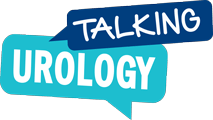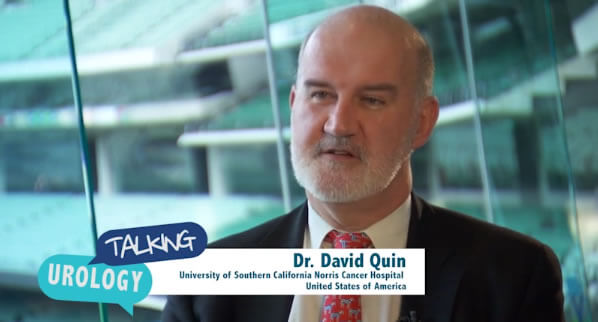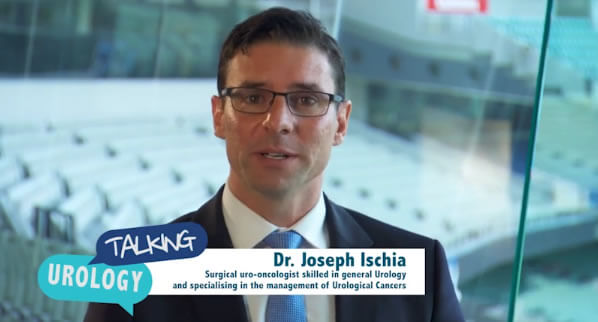ANZUP 2018 – Dr Haryana Dhillon
Dr Haryana Dhillon: Are we doing enough to address anxiety and depression in patients with prostate cancer and what can we do about it?
Talking Urology Podcast Transcript
ANZUP 2018 Interviews – Haryana Dhillon
Joseph Ischia: Thanks, Hary, for joining us. You gave a fantastic talk today on the psychological impact of cancer. What were some of the key points you wanted the audience to take away?
Haryana Dhillon: Oh, I guess what I’d really like people to take on board and think about quite hard is how much of it patients put into maintaining their health, adhering to their treatments and getting themselves into the hospital system and the impact that has on the individuals, as well as their family members. It’s quite hard work and sometimes people find it very distressing and quite stressful to do that as well as expensive.
Joseph: Okay. And from a cancer perspective, obviously there is a lot of depression that is probably under-reported and under-detected by doctors. What are some of the key tips you have for us when trying to manage patients in this situation?
Haryana: Well, I guess the main thing is to be aware of it and really to do what you can to try and destigmatize anxiety and depression. So, we know that there has been a lot of campaigning around Australia and in other places particularly to try and reduce the stigma of anxiety and depression but it is still pretty strong, so we know that about 21% of cancer patients will experience a mood disorder, so either anxiety or depression. Sometimes people will experience both of those things and they are really likely to go undetected because sometimes health professionals think that it’s kind of normal for cancer patients to be a bit down and sad because it’s part of having cancer. The problem is that we know that we’ve got interventions that help people who are clinically depressed or clinically anxious and some of those people are not getting the help that they need and that is a really big problem for them.
Joseph: You used a very interesting sentence in your talk today. Is compassion clouding our clinical judgment? What do you mean by that?
Haryana: Well, I think we spent a lot of time trying to recognize that the cancer experience for people is challenging and that they need our compassion. They need us to be able to feel for them and to have empathy with the situation that they are in. What sometimes happens is though that I think that we don’t look hard enough at what’s really going on with them so as I mentioned earlier it’s actually around that question of are these individuals actually clinically depressed or clinically anxious and do they need treatment, and we think we are being kind to them and compassionate but actually we are not helping them get to the treatment that they need.
Joseph: So, a pat on the shoulders not treatment, is that what you’re telling us?
Haryana: I think that’s definitely not treatment.
Joseph: So, what can we do, if you can give some practical advice for the listeners, what can we do then to maybe help identify patients that would benefit from a referral to a psychiatrist or someone, maybe a psychologist, what do you recommend?
Haryana: Well I guess I would say straight up most people are not going to need a psychologist necessarily or a psychiatrist. They might need some support for a little bit of the time but the majority of people that you’re going to ask the question to are not going to need that much help. I guess the key thing is that you need to ask and ask in a way that patients are actually going to respond.
Joseph: Give me a practical question I can use.
Haryana: Well, I guess, yes, it’s tricky because sometimes it is easier to ask it on a tool so actually using a distress thermometer in practice or one of those simple tools is actually really helpful. The challenge then is though that you’ve got to have someone to check it and you need to then be able to follow up on it. So, I think just asking people how you are traveling and what is happening, and actually telling them upfront and telling them regularly that there might be times when you do actually want to have some extra help and maybe sometimes just talking to somebody who is outside of your family and is not part of your direct cancer team, can actually really help you to manage the emotions that go with being on this journey.
Joseph: Wonderful. Thank you very much Hary. Is there anything else you want us to take away from today’s talk?
Haryana: Well, I guess the only other thing that I would say is that there has been a lot of energy in different places and different times put into trying to set up distress screening for cancer patients but one of the things that has happened quite consistently in that processes by not having a clinical pathway to back that up, the systems have fallen over and so I think it is really important that we do the work to make sure that we’ve got the clinical pathway to direct patients to and to do the work around implementing that properly in a way that’s manageable so that we get the best care to people all the time.
Joseph: Thanks very much Hary. You’re a great friend of Talking Urology. I appreciate you being here.
Haryana: Pleasure.












